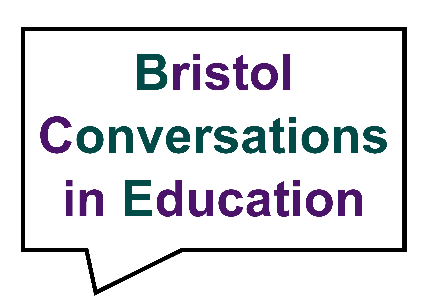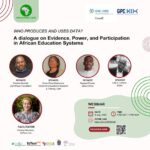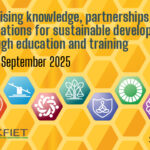
CONNECTING DECOLONIAL AND SUSTAINABLE FUTURES IN EDUCATION
This is a series of three online seminars – please register for each one separately via the links below and read through the confirmation email for details of how to attend
This event is part of the School of Education’s Bristol Conversations in Education research seminar series. These seminars are free and open to the public.
You are invited to a series of events on the topic of decolonising education for sustainable futures. The aim of this series is to consider how ideas about the future of education can benefit from current efforts to decolonise education.
Co-hosted by the UNESCO Chair on Inclusive and Quality Education for All, with the Centre for International Research in Education, EdJAM – Education, Justice and Memory Network and Educational Futures Network, School of Education, University of Bristol.
The idea of sustainable futures lies at the heart of UNESCO’s Futures of Education initiative which aims to reimagine how knowledge and learning can shape the future of humanity and the planet by equipping learners with diverse ways of being and knowing. Yet much of the knowledge, values and skills that we are expected to learn in formal education systems have been Eurocentric in nature. That is to say that they draw primarily on Western frameworks and histories, excluding other ways of conceiving the natural and social world. Protests including those led by the Black Lives Matter, Rhodes Must Fall, Indigenous and other anti-colonial, anti-racist social movements have called for education to be decolonised and for diverse knowledge systems to be the basis for realising equitable and sustainable futures. These demands have become accentuated in the current crisis. This series is about the importance of recognising epistemic justice as a condition for realising social and environmental justice in and through education and training.
The following overarching questions will guide discussions:
- In what ways are agendas for decolonising education and sustainable futures connected? What are the tensions? What does decolonising education for sustainable futures involve? How should it be conceived and enacted?
- What are the roles and responsibilities of educational organisations/institutions, individuals and civil society stakeholders in decolonising education?
- What forms of repair and reconstruction are required for sustainable futures of education? What are the possibilities for ‘reparative’ justice in and through education, given education’s enduring complicity with coloniality and environmental injustice?
A series of three 1.5 hour online seminars will be convened to address these overarching questions. Using an open, roundtable approach, the seminars aim to bring together policy, practitioner and academic communities and will include a panel of speakers with plenty of time for audience participation in the spirit of dialogue.
- Connecting decolonial and sustainable futures in education
10 February, 12-13:30 (GMT)
Convenors: Professor Leon Tikly (UNESCO Chair in inclusive, good quality education) and Dr Keith Holmes (UNESCO, Future of Learning and Innovation team)
This will serve as an introductory session that will introduce the Futures of Education initiative and set out some of the theoretical and political connections between the decolonial and environmental justice agendas in education.
Video clip: Learning to Become
Panelists:
- Professor Noah Sobe (UNESCO, Future of Learning and Innovation team)
- Professor Veronica Pacini-Ketchabaw (Faculty of Education, Western University, Canada and Common Worlds Research Collective, and co-author of Learning to Become with the World: Education for Future Survival)
- Professor Catherine Odora Hoppers (Professor Extraordinarius, University of South Africa; Professor of Education, Gulu University, Uganda and author of Knowledge Production, Access and Governance: A Song from the South).
- Professor Leon Tikly (UNESCO Chair in Inclusive and Quality Education for All, University of Bristol)
REGISTER FOR ‘CONNECTING DECOLONIAL AND SUSTAINABLE FUTURES IN EDUCATION’





